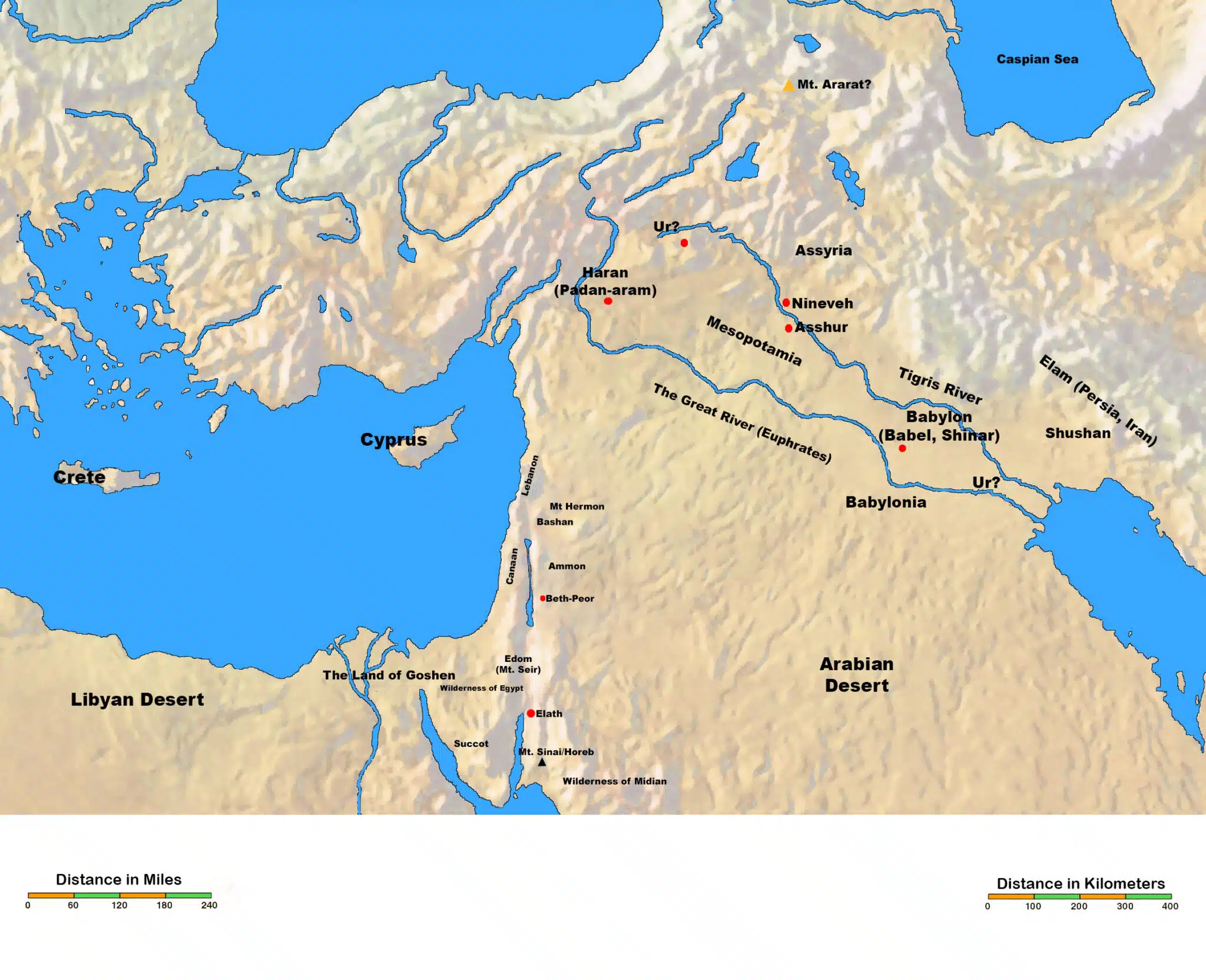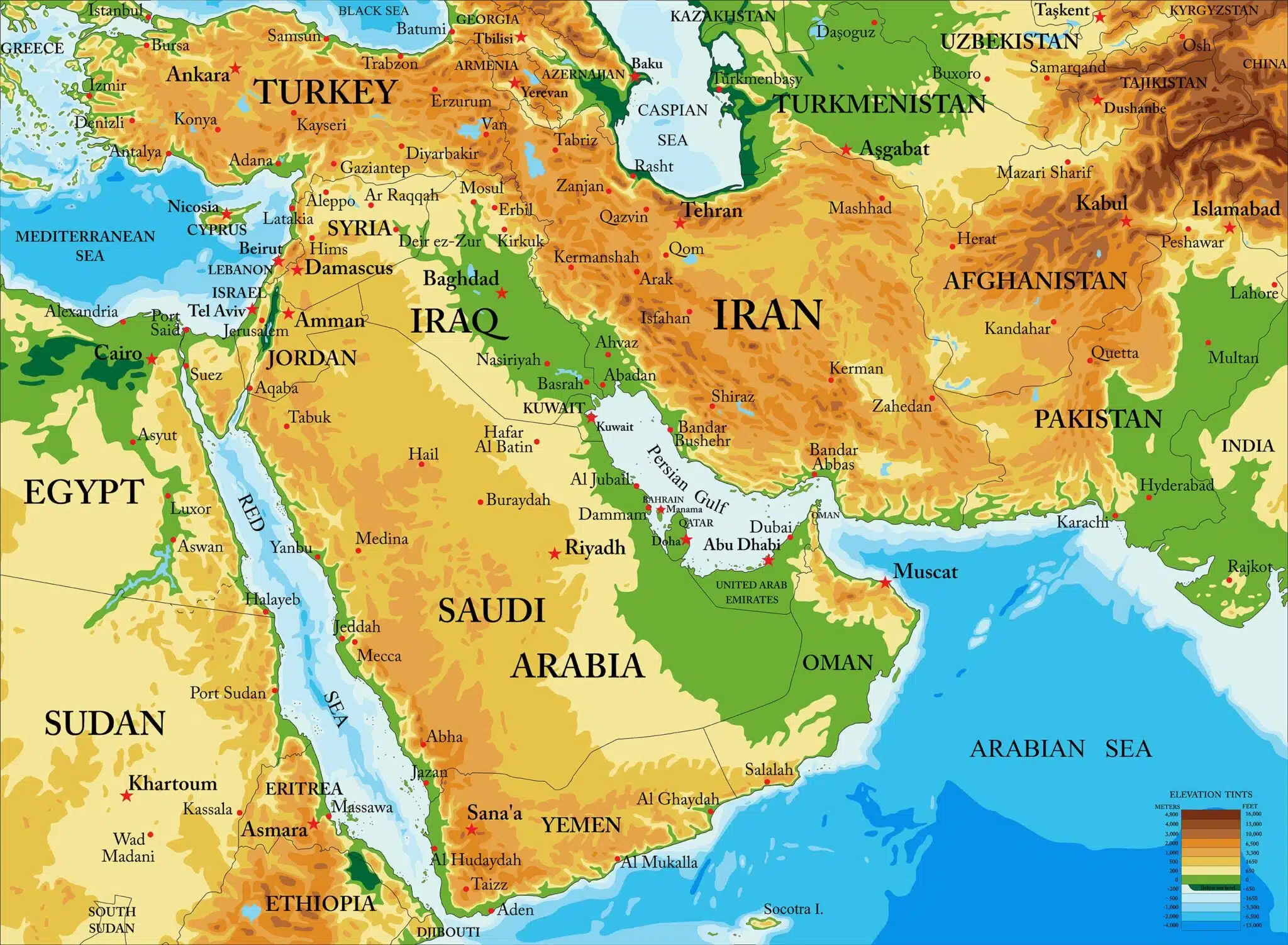The lineage tracing from Shem to Abram draws to a close with Abram and his two brothers.
Abram’s grandfather and brother are both named Nahor. A city known as Nahur is located not far from Haran in northwestern Mesopotamia. The grandfather Nahor lived 138 years, a much shorter lifespan than his father Serug (230 years) or his son Terah (205 years). Rebekah, the wife of Isaac and mother of Esau and Jacob, is from the “town of Nahor” (Genesis 24:10) and is the granddaughter of Nahor (Genesis 22:23). This town name could be connected with Nahor.
Assyrian sources mention a place-name Til (ša) Turaḫi situated on the Balikh River not far from Haran and Nahor. The name may be connected with Terah. Terah becomes a father at a much later age (seventy years) than his predecessors, who became fathers in their early thirties.
Abram is the 10th generation from Shem, just as Noah was the 10th generation from Adam. As with the birth of Adam and Noah, the birth of Abram represents a turning point in human history. Abram persisted in his faith and was declared righteous before God as Romans 4:3 declares, “For what does the Scripture say? ‘Abraham believed God, and it was credited to him as righteousness” (Romans 4:20-23; Genesis 15:5-6).
Biblical Text
22 Serug lived thirty years, and became the father of Nahor; 23 and Serug lived two hundred years after he became the father of Nahor, and he had other sons and daughters. 24 Nahor lived twenty-nine years, and became the father of Terah; 25 and Nahor lived one hundred and nineteen years after he became the father of Terah, and he had other sons and daughters. 26 Terah lived seventy years, and became the father of Abram, Nahor and Haran.
Check out our other commentaries:
-
Amos 6:8 meaning
Through the oracle of Amos, the LORD swears by Himself that He will deliver up the city of Samaria and all it contains because He...... -
The Temple meaning
In Hebrew, the temple is called the “Beit Hamikdash” which means “the holy house.” It was intended to be God’s earthly dwelling place....... -
Philippians 2:12-16 meaning
Paul encourages the Philippians to have the mindset of Christ: to obey God no matter the earthly cost. To continually adopt this mindset takes hard...... -
Romans 7:21-23 meaning
Evil is present in us, even when we are redeemed. Sin’s desire is to hold us captive and obedient to it, acting through the sin...... -
Romans 2:22-24 meaning
The hypocrisy of those who teach the law, but do not follow it themselves, not only dishonors God, but it also harms the witness of......




